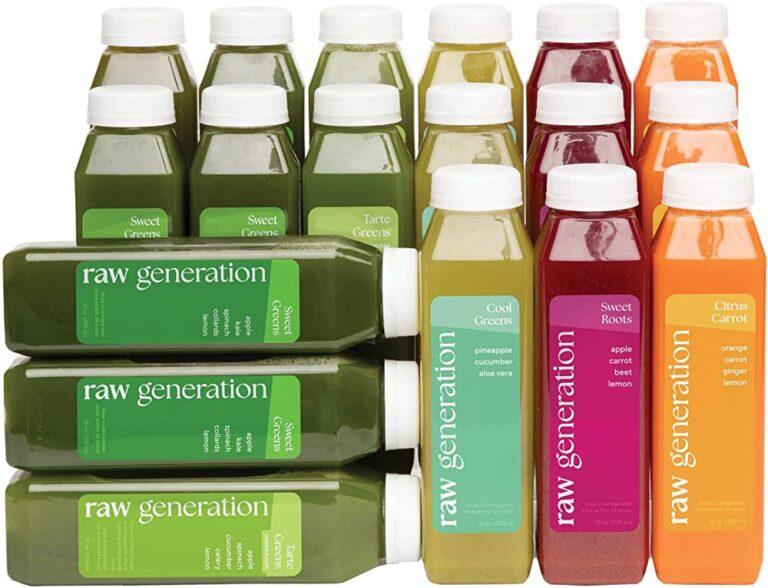According to research1 published in the Journal of the American Society of Nephrology (JASN) in 2018, oral antibiotics are a risk factor for kidney stones. Health records for 13 million children and adults in the U.K. were reviewed, showing that exposure to five classes of oral antibiotics were associated with kidney stones within three to 12 months post-use. The adjusted odds ratio of kidney stones was:
The association was most pronounced among younger children and remained statistically significant for up to five years after exposure, with the exception of broad-spectrum penicillin. The authors concluded that:2
“Oral antibiotics associated with increased odds of nephrolithiasis [kidney stones], with the greatest odds for recent exposure and exposure at younger age. These results have implications for disease pathogenesis and the rising incidence of nephrolithiasis, particularly among children.”
Kidney Stones in Children Are on the Rise
If this link is true, then we’d expect to see rising rates of kidney stones in young patients, and that’s precisely what we’re seeing. As reported by NBC News, July 8, 2023,3 data show kidney stones are “now occurring in younger people, particularly among teenage girls,” and “diets high in ultraprocessed foods” and “increased use of antibiotics early in life” are thought to be among the key contributors to this trend.
Between 1997 and 2012, kidney stones during childhood doubled.
According to research4 published in the Clinical Journal of the American Society of Nephrology in 2016, between 1997 and 2012, the mean annual incidence of kidney stone disease across age groups increased 1% annually, from 206 to 239 per 100,000 persons.
The highest increase was seen in 15- to 19-year-olds, among whom the incidence rate increased 26% per 5 years. Within this age group, incidence was 52% higher among girls. In men, kidney stones became more common after age 25. According to the authors:5
“These changes in incidence resulted in doubling of the risk of nephrolithiasis during childhood and a 45% increase in the lifetime risk of nephrolithiasis for women over the study period.”
Oral Antibiotics Associated With Inflammatory Bowel Disease
As noted by the JASN authors,6 previous studies have found an association between oral antibiotics and inflammatory bowel disease (IBD), which is thought to be due to a disruption of gut microbiome.
In May 2022, research7 linking oral antibiotics and IBD was presented at the Digestive Disease Week conference in San Diego, California. Here, the researchers analyzed the health records of more than 2.3 million older adults, aged 60 to 90, who were part of the Danish National Patient Register and the Danish National Prescription Register.
On average, use of antibiotics was associated with a 64% increased risk of developing IBD, and the risk increased with additional doses.8 Compared with those who had taken no antibiotics in the previous five years:9
Adults who had been prescribed antibiotics one to two years prior to IBD diagnosis had the highest risk. And, while all classes of antibiotics were associated with increased IBD risk, fluoroquinolones, which include brand names Cipro and Levaquin, had the strongest association.10
Interestingly, a very recent study that was just published found that niacinamide may be very useful in the treatment and prevention of IBD11 by converting to NAD+ as a cofactor to produce more ATP in the mitochondria. I have written two reviews that discussed the many other benefits of niacinamide to increase NAD+.
Fluoroquinolones Linked to Fatal Heart Condition
Fluoroquinolones, which are frequently prescribed for upper respiratory infections and urinary tract infections (UTIs) have also been shown to harm your heart. In December 2018, the U.S. Food and Drug Administration issued a safety announcement12 about fluoroquinolones after four studies linked the antibiotic to an increased risk of tears in the aorta (aortic dissection), which can be fatal.13
The aorta is the main artery in your body supplying oxygenated blood to your circulatory system. The artery comes from the left side of your heart and runs down the front of your backbone. The review by the FDA found fluoroquinolone antibiotics increase the risk of rupture following an aortic aneurysm (i.e., enlargement of the aorta to more than 1.5 times its normal size).
The finding led the FDA to caution against the use of fluoroquinolone antibiotics in those at risk unless there are no other treatment options available. Specifically, the antibiotic should not be used by:
Antibiotics Linked to Colorectal Cancer
Researchers have also linked the use of antibiotics to an increased risk of colorectal cancer. As reported by Live Science in 2014:14
“… researchers looked at the medical records of more than 22,000 colorectal cancer patients in the United Kingdom, and followed them for an average of six years … The researchers compared the amount of antibiotics the patients had taken at least six months before being diagnosed with cancer, to the amount of antibiotics taken by a group of about 86,000 healthy people.
After controlling for known risk factors for colorectal cancer — including obesity, diabetes, smoking and alcohol consumption — the results showed people who had taken antibiotics, including penicillins, quinolones and metronidazole, were 8% to 11% more likely to develop colorectal cancer … possibly through the effects of the drug on colon bacteria …”
A 2016 study15 also concluded that use of antibiotics was associated with an increased risk of colorectal cancer, especially when used frequently, and research16 published in 2017 found that women who had used antibiotics for two months or more were at an increased risk of developing colon polyps, which can be a precursor to colorectal cancer.
Those who used the drugs for a total of at least two months in their 20s and 30s had a 36% increased risk of polyps compared to those who did not, and women who used them for at least two months in their 40s and 50s had a 69% increased risk.
Antibiotics Fuel Chronic Disease by Decimating Your Microbiome
In the article I wrote in February of this year “The New Endangered Species: The Human Gut Microbiome,” I reviewed the documentary film “The Invisible Extinction,” which highlights the work of microbiologists Dr. Martin Blaser and Gloria Dominguez-Bello, who are investigating the links between chronic diseases and the loss of bacterial diversity in the human gut.
Overuse of antibiotics is a major driver of this loss. Elective C-sections and processed foods also contribute to the destruction of our microbiome. According to research published in the Cleveland Clinic Journal of Medicine in 2018,17 Americans have already lost half of their microbial diversity, which is why the risks of antibiotics must be carefully weighed against the benefits prior to use.
Many ‘Health Foods’ Also Contribute to Kidney Stones
As mentioned, diet can also play a significant role in kidney stone development, and processed foods aren’t the only culprits. Oxalate (oxalic acid with calcium attached) account for about 80% of all kidney stones, and high-oxalate foods such as spinach, Swiss chard and beet greens are touted as “superfoods.”
Another high-oxalate food is almonds, which you can easily “overdose” on if you’re eating bread made with almond flour or drinking almond milk, or if you’re on a keto or paleo diet, as they both tend to rely heavily on almonds. Other foods high in oxalate include peanut butter, wheat bran, potatoes, rice bran and dark chocolate.
If you’re prone to kidney stones, these are all foods that need to be avoided as much as possible. High-oxalate foods can also contribute to many other troublesome health problems, as discussed in my December 2022 interviewed with Sally Norton, author of “Toxic Superfoods.”
For example, aside from calcium oxalate kidney stones, other symptoms you might experience if you’re exposed to excessive amounts of oxalate include:
This content was originally published here.




















